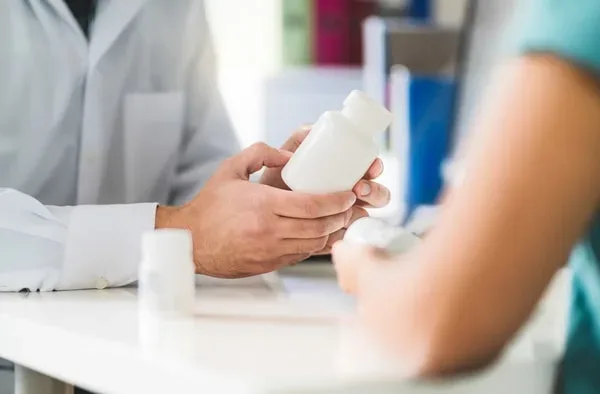
Post-traumatic stress disorder, commonly known as PTSD, is a type of anxiety disorder that is triggered by a traumatic event. It is commonly associated with veterans, but anyone can develop this condition. Here are the causes, symptoms, and treatment options for PTSD.
What Causes PTSD?
People develop post-traumatic stress disorder in response to a life-threatening, traumatic event. It could be an event that happened to them or an event they witnessed or heard about.
PTSD can be caused by:
- Physical abuse
- Rape or sexual assault
- Violent crimes
- Fire
- Natural disaster
- Car accident
- Plane crash
- Exposure to war and/or military combat
- Terrorist attacks
- Kidnapping
- Torture
- The sudden, unexpected death of a loved one
- Serious, life-threatening illness
- Miscarriage or difficult childbirth experience
- Exposure to violence through the job (EMT, firefighter, police officer, etc.)
Who Is at Risk for PTSD?
It is not known why some people develop PTSD and others don’t. However, there are certain risk factors that have been identified.
Risk factors for PTSD include:
- Genetics
- Lack of social support
- Low IQ score
- High neuroticism (tendency to react negatively to setbacks)
- Past trauma
- Existing mental health condition
- Experiencing stressful life events at the time of the trauma
PTSD Symptoms
PTSD is diagnosed according to criteria from the Diagnostic and Statistical Manual of Mental Disorders. Watch out for these symptoms after a traumatic event. If you notice any of these behaviors or thoughts, it could be PTSD.
- Having unwanted, intrusive thoughts about what happened
- Dreaming about the traumatic event
- Having trouble falling or staying asleep
- Feeling greatly distressed when thinking about the event or being exposed to things that remind you of what happened. For example, someone who was in a bad car accident might feel distressed while driving or riding in a car
- Deliberately avoiding any thoughts or memories of what happened, and avoiding external reminders such as people, locations, or activities
- Unable to remember details of what happened
- Experiencing flashbacks — moments where it feels like you are living through the event again
- Believing negative things about yourself or others, especially generalized beliefs like “No one can be trusted,” or “I’m a terrible person”
- Blaming yourself or other people for what happened
- Feeling irritable
- Having trouble concentrating
- Startling easily
- Feeling hypervigilant
- Engaging in self-destructive or reckless behavior
- Feeling negative emotions much of the time, such as guilt and fear
- Difficulty feeling positive emotions
- Losing interest in normal activities you enjoy
- Withdrawing from friends and family
An important diagnostic criterion for PTSD is that these symptoms need to last for over a month. If they subside within a month, then the individual will likely be diagnosed with acute stress disorder instead. Symptoms must also be severe enough to disrupt your daily life, and they can’t be caused by drug or alcohol use or a medical condition.
In most cases, you will experience symptoms within months of the event, but it could be years before you develop PTSD symptoms.
PTSD in Children and Teens
Children can develop PTSD as well, although they may display different symptoms than adults, including:
- Re-enacting the trauma through play
- Having nightmares that aren’t specifically about the event
- Wetting the bed, even if they have been toilet trained
- Acting clingy with parents or caregivers
- Forgetting how to speak
Teens tend to display the same symptoms as adults, but they may experience more guilt and self-destructive behaviors.
If your son or daughter has been through a traumatic event, watch closely for signs of PTSD. The disorder will not go away on its own and may lead to other mental health disorders like depression, anxiety, or substance use. Also, be mindful of how you as a parent react to the trauma. The National Center for PTSD has found that PTSD symptoms in children are less severe when parents keep their reactions to the event under control.
Talk to your primary care provider if you notice any of the symptoms of PTSD or are concerned that your child is not coping well with the trauma. A mental health evaluation for your son or daughter can also be helpful if they are experiencing symptoms.
Treatment Options
Treatments for PTSD include medications and trauma-focused therapies. The National Center for PTSD recommends these therapies:
- Prolonged Exposure (PE)
- Cognitive Processing Therapy (CPT)
- Eye Movement Desensitization and Reprocessing (EMDR)
Some other effective therapies include:
- Cognitive Behavioral Therapy (CBT)
- Brief Eclectic Psychotherapy (BEP)
- Narrative Exposure Therapy (NET)
- Written Narrative Exposure
You might also treat PTSD with antidepressant medications such as Zoloft or Prozac. Additionally, there are holistic therapies that might help, like trauma-sensitive yoga and meditation.
Learn more about how PTSD is treated.
Help for PTSD
If you or a loved one is having a hard time coping with a traumatic event, consider getting help from a mental health treatment provider. The Light Program offers mental health treatment services throughout eastern Pennsylvania. Contact us to begin your healing.
References:
https://www.verywellmind.com/ptsd-causes-and-risk-factors-2797397
https://www.verywellmind.com/worry-and-anxiety-impact-longevity-2223983
https://www.ncbi.nlm.nih.gov/books/NBK207191/box/part1_ch3.box16/
https://www.webmd.com/mental-health/post-traumatic-stress-disorder-ptsd#1
https://www.nimh.nih.gov/health/topics/post-traumatic-stress-disorder-ptsd/index.shtml
https://childmind.org/guide/post-traumatic-stress-disorder/
https://www.ptsd.va.gov/understand/common/common_children_teens.asp
https://www.ptsd.va.gov/understand_tx/tx_basics.asp
https://www.verywellmind.com/ptsd-treatment-2797659
https://www.bbrfoundation.org/ask-an-expert/how-long-does-ptsd-last





